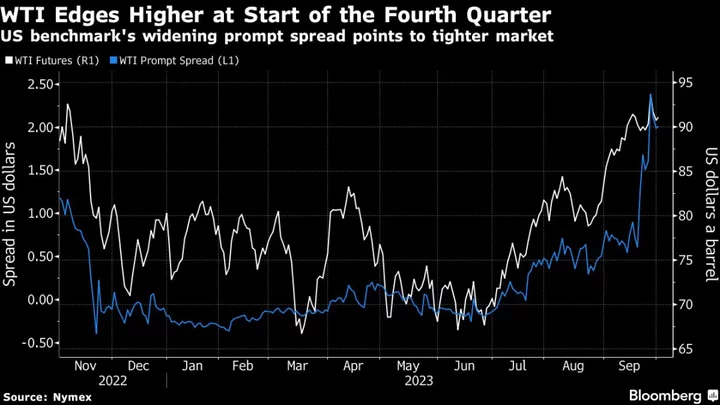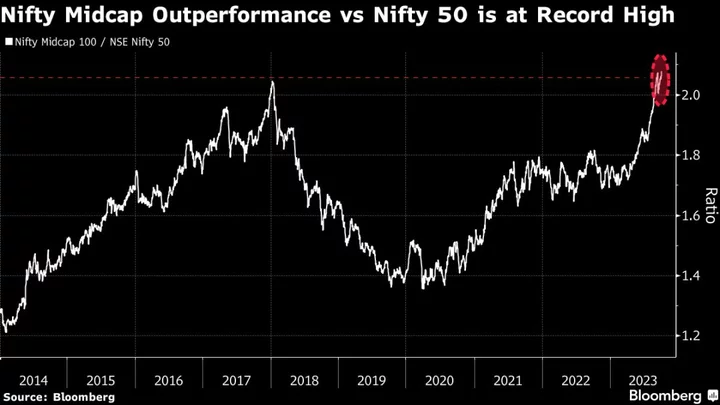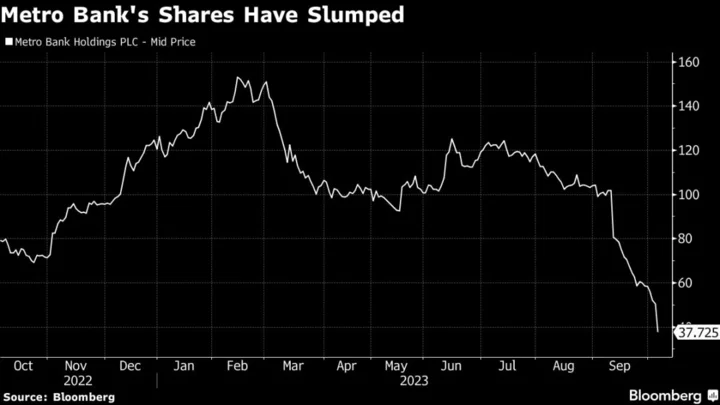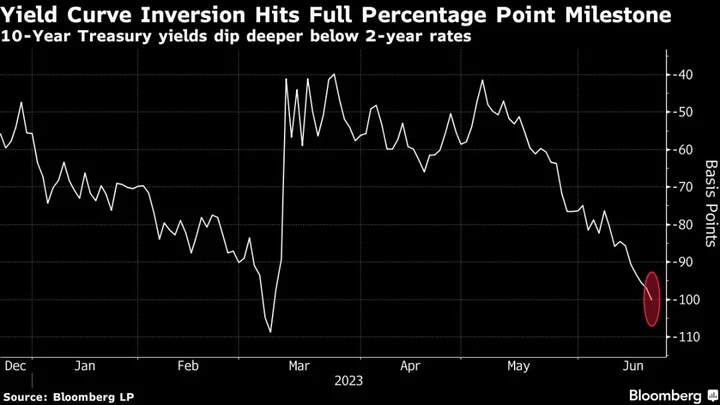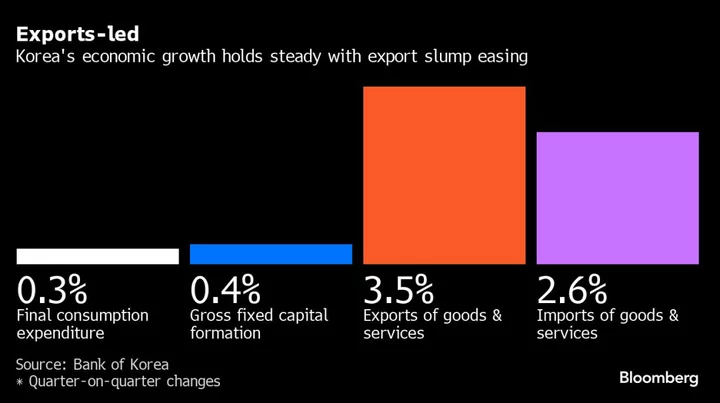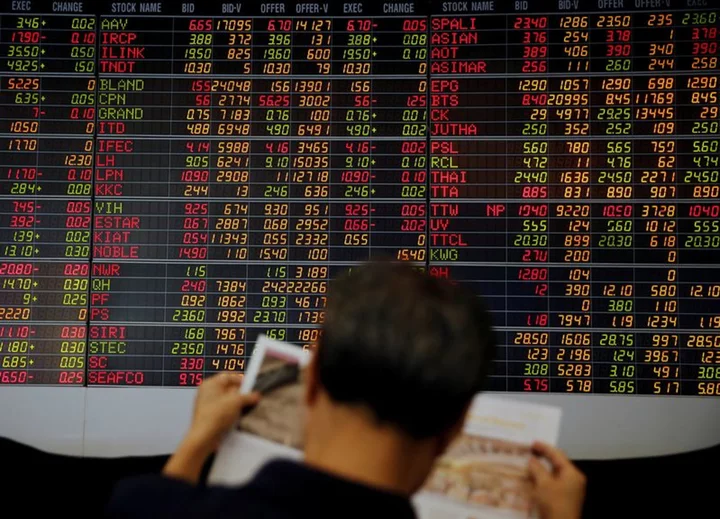Oil prices fell, with the US benchmark tumbling below $90 a barrel, as worries about further interest rate increases and a slowdown in the economy roiled broader markets.
West Texas Intermediate traded near $89 a barrel, reversing course after an earlier increase of 1.2%. The S&P 500 slipped and the dollar rose, with investors awaiting clues about the path of Federal Reserve interest rate policy. Prices held onto losses as Fed Chief Jerome Powell appeared at a roundtable discussion on Monday. Officials have indicated rates are likely to remain high, while JPMorgan Chase & Co. Chief Executive Officer Jamie Dimon sees the possibility of them climbing more.
High interest rates, which make it more expensive to store and ship crude, have capped oil’s gains even as physical markets remain tight due to supply curbs from Saudi Arabia and allies.
“Rates and the dollar are primary drivers today,” said Rebecca Babin, a senior energy trader at CIBC Private Wealth. “Much of the physical market tightness has been priced in, and the most severe inventory draws may be behind us.”
Earlier in the session, there were mixed signals around the restart of a key oil pipeline that runs from Iraq to Turkey. While a Turkish minister said the pipe was ready to operate, a senior Iraqi official said it can’t start until commercial issues between the two countries have been resolved. The line carries almost half a million barrels of crude a day, and a restart would help ease some of the market’s tightness.
Oil has rallied since mid-June after the Organization of Petroleum Exporting Countries and its allies curbed crude supplies, Russia banned exports of diesel and official US data confirmed a plunge in crude stockpiles at the vital hub in Cushing, Oklahoma. The upsurge — which has also been supported by robust demand - has rekindled speculation that $100-a-barrel pricing may return.
Oil’s recent rally had also started to meet technical resistance. On Monday, Brent slid into neutral territory on its 14-day relative strength index after five days of trading overbought on that basis.
Still, not everyone expects tighter balances. Citigroup Inc. said Brent would sink back into the low $70s a barrel next year as supply increases, pushing the market into a glut.
“Higher prices in the near term could make for more downside for prices next year,” analysts including Ed Morse wrote in a note.
To get Bloomberg’s Energy Daily newsletter into your inbox, click here.
--With assistance from Elizabeth Low and Yousef Gamal El-Din.

